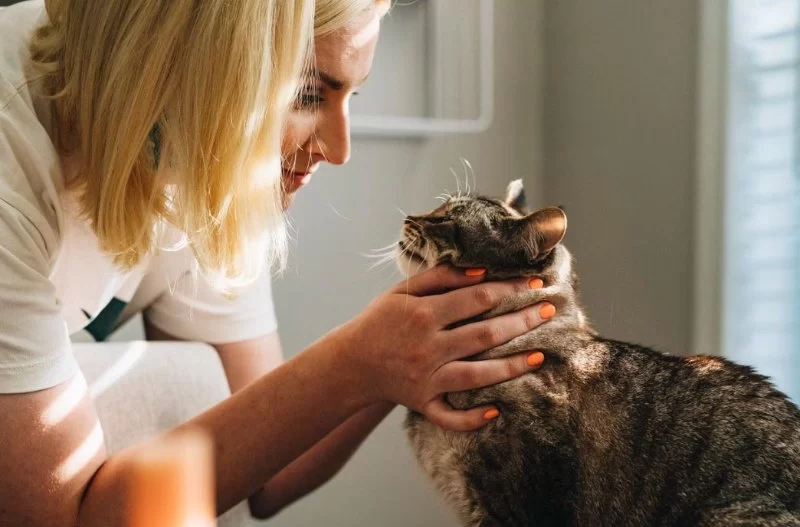What Skills Are Needed for a Veterinarian: A Comprehensive Guide
- -Understanding the Role of a Veterinarian
- -Key Skills and Traits for Aspiring Veterinarians
- -Educational Pathways and Training for Veterinarians
- -Real-Life Case Studies of Veterinarians' Experiences
- -The Importance of Soft Skills in Veterinary Care
- -Opportunities for Veterinarians in Various Fields
1. Understanding the Role of a Veterinarian
Being a veterinarian involves more than just caring for animals. It’s a profession that requires a unique combination of technical knowledge, practical experience, and compassion. Veterinarians diagnose and treat illnesses, injuries, and diseases in animals, working in a variety of settings such as private clinics, animal hospitals, research labs, and even wildlife conservation areas.
1.1 The Daily Responsibilities of a Veterinarian
A veterinarian's day is filled with a variety of tasks that can range from performing surgeries to advising pet owners on proper animal care. They examine animals, provide vaccinations, prescribe medications, and perform diagnostic tests to understand the conditions affecting the animals they treat. A veterinarian must also maintain accurate medical records and communicate effectively with pet owners and animal caretakers.

3300 N Tamiami Trl STE 103A, Port Charlotte, FL 33952, USA
See Details2. Key Skills and Traits for Aspiring Veterinarians
To be successful in the veterinary field, certain skills are essential. These not only involve technical abilities but also interpersonal qualities that help veterinarians connect with both animals and their owners. Here are some of the top skills needed:
2.1 Strong Knowledge of Animal Health
Veterinarians need to have an in-depth understanding of animal anatomy, physiology, and the diseases that affect different species. This knowledge forms the backbone of their diagnostic abilities and treatment plans. It’s critical to stay updated with the latest research and treatment methods to offer the best care possible.
2.2 Communication Skills
Effective communication is one of the most important skills for a veterinarian. Not only do they need to communicate clearly with pet owners about the health of their animals, but they must also explain complex medical terms in an understandable way. Additionally, communication with other veterinary professionals and support staff is essential for collaborative care.
2.3 Manual Dexterity
Veterinarians often perform surgeries and other hands-on procedures, so having good manual dexterity is crucial. Fine motor skills are necessary for tasks such as suturing wounds, administering injections, and even performing delicate surgeries.
2.4 Compassion and Empathy
Veterinarians must be compassionate and empathetic, not only towards animals but also their owners. Pets are often seen as family members, and their owners can be extremely stressed when their animals are unwell. Understanding and providing emotional support is just as important as medical treatment.
3. Educational Pathways and Training for Veterinarians
Becoming a veterinarian requires significant education and hands-on training. Aspiring veterinarians typically need a bachelor's degree followed by a veterinary degree from an accredited veterinary school. Here’s a look at the necessary steps:
3.1 Educational Requirements
To begin a veterinary career, one must first earn a bachelor's degree, typically in a related field like biology, chemistry, or animal science. After that, they need to attend a veterinary school to obtain a Doctor of Veterinary Medicine (DVM) degree, which typically takes 4 years to complete.
3.2 Hands-on Experience
In addition to classroom learning, veterinary students must complete clinical rotations and internships to gain practical experience. These allow them to apply their knowledge in real-world settings under the supervision of experienced veterinarians.
4. Real-Life Case Studies of Veterinarians' Experiences
Understanding the skills required for a veterinarian can be further clarified through real-life examples. Veterinarians often share their experiences working in challenging situations or dealing with complex cases. These stories offer valuable insight into the daily responsibilities and emotional challenges that come with the profession.
4.1 Case Study: Emergency Surgery
One veterinarian recalls a situation where they had to perform an emergency surgery on a dog that had swallowed a foreign object. This case required quick thinking, excellent manual dexterity, and the ability to stay calm under pressure. The veterinarian not only saved the dog’s life but also had to console the worried pet owners during the recovery process.
5. The Importance of Soft Skills in Veterinary Care
While technical skills are crucial, soft skills such as patience, communication, and emotional intelligence are just as vital for veterinarians. Veterinary professionals deal with animals in distress and their anxious owners, so a compassionate approach goes a long way in ensuring both the animal’s well-being and the owner’s peace of mind.
6. Opportunities for Veterinarians in Various Fields
The veterinary profession offers diverse opportunities beyond traditional practice. Veterinarians can specialize in fields such as:
- Veterinary surgery
- Animal behavior and training
- Wildlife and conservation biology
- Public health and epidemiology
With the right set of skills, veterinarians can carve out fulfilling careers in numerous industries, from private practice to research and beyond.
7. Enhance Your Veterinary Skills with the Right Tools
As a veterinarian, having the right tools can make all the difference. At Pine Cliff Resort, we offer a range of products and services tailored to the veterinary profession. From top-notch medical equipment to resources for continuous learning, check out our offerings to equip yourself for success.











